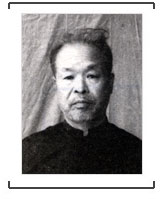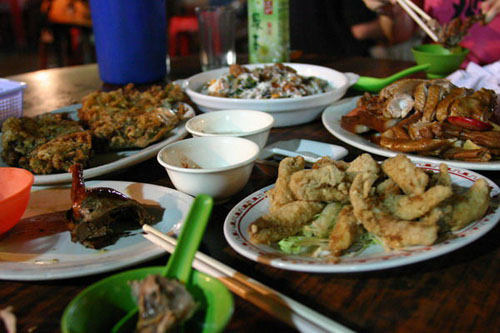日本战犯的侵华罪证自供——船木健次郎
据船木健次郎1954年5月—6月笔供,他1897年生于日本富山县,1937年12月到中国东北,任第4国境守备队步兵少佐大队长。1943年8月回日本,又到朝鲜。1945年6月任第137师团第375联队大佐联队长。1945年8月15日被苏联红军俘虏。

船木健次郎
重要罪行有:
“我大队由于团长命令对村庄进行覆灭的事也有过数次,其年、月、日、地点等没有明确的记忆。即于东斋堂南方15公里的地点,一处约15户。于东斋堂西南方20公里地点,一处约15户。于东斋堂西北方20——约30公里地点,一处约有15户。”
“1941年8月份,对宛平县西南方地区之旅团作战”,“旅团预备队把一个村庄(东斋堂西南方约45公里)烧毁了,其户数我记得约15户。”
“1943年4月份,对宛平县南方地区之旅团作战”,“旅团预备队把该地区(东斋堂西南方约60公里)的村庄烧毁了数个” 。
“关于奴役居民的事项”,“记得构筑了可容卫兵7名至20名用的小阵地约6处,为此而共需要了1500人次。又因为要加强修补既已构筑的阵地,从东斋堂开始我想约有3个地方,共需人员约1000人次。”“为了经济封锁而构筑‘遮断壕’”,“实际上建筑了壕的部分约有15公里左右。因此每日需要劳动力约1000至2000人,需要时间约一个月。”
“关于使用毒瓦斯。没有发给我大队毒瓦斯,但是发过赤筒。我想时期是在1942年。旅团兵器部发给时,大队兵器系军官对我说明赤筒是属于毒瓦斯的范围内的。发给赤筒数量不记得了,我想是大队平均分配给各中队了。至于各中队如何使用了详细的事情记不清了。”
笔供英文内容提要(Abstract of the Written Confessions in English)
Kenjirō Funaki(船木健次郎)
According to the written confession of Kenjirō Funakifrom May to June 1954, he was born in Toyama Prefecture, Japan in 1897. He went to northeast China in December 1937 and served as major and battalion commander of the 4th Frontier-Guard Infantry. He returned to Japan in August 1943 and later went to the Korean Peninsula. He became colonel and commander of the 375th Regiment of the 137th Division in June 1945. He was captured by the Soviet Army on 15 August 1945.
Major offences:
“There were several cases when my battalion was instructed by the division commander to destroy the villages. The exact year, month, date or place could not be remembered. One village was about 15 kilometers to the south of Dongzhaitang and had about 15 households; another village was 20 kilometers to the southwest of Dongzhaitang and had around 15 households; and the third was 20 to 30 kilometers to the northwest of Dongzhaitang and had about 15 households”;
“In August 1941, in a brigade battle to the southwest of Wanping County”, “the reserve forces burnt down a village (about 45 kilometers southwest to Dongzhaitang) which had about 15 households as I remember”;
“In April 1943, in a brigade battle to the south of Wanping County”, “the reserve forces burnt down several villages (about 60 kilometers to the southwest of Dongzhaitang) in that area”;
“about enslaving local residents”, “I remember 6 positions with the capacity of holding 7 to 20 guards each were built, for which 1,500 person-time were needed. Also to consolidate the existing positions in about three places from Dongzhaitang as I recall, 1,000 person-time was needed.” “To build the ‘interception trench’ for the purpose of economic blockade”, “about 15 kilometers of the trench was actually built, for which 1,000 to 2,000 labors were needed every day in about one month”;
“As for the use of poison gas, our battalion was not issued the poison gas, but was issued the red colored canisters. I think it was in 1942. When the Brigade Armament Department issued them, a Battalion Armament Department officer told me that the red colored canisters were categorized as poison gas weapons. I do not remember the exact number of the red colored canisters issued. I think they were evenly distributed among the companies. I do not remember the details of how each company used it.”







